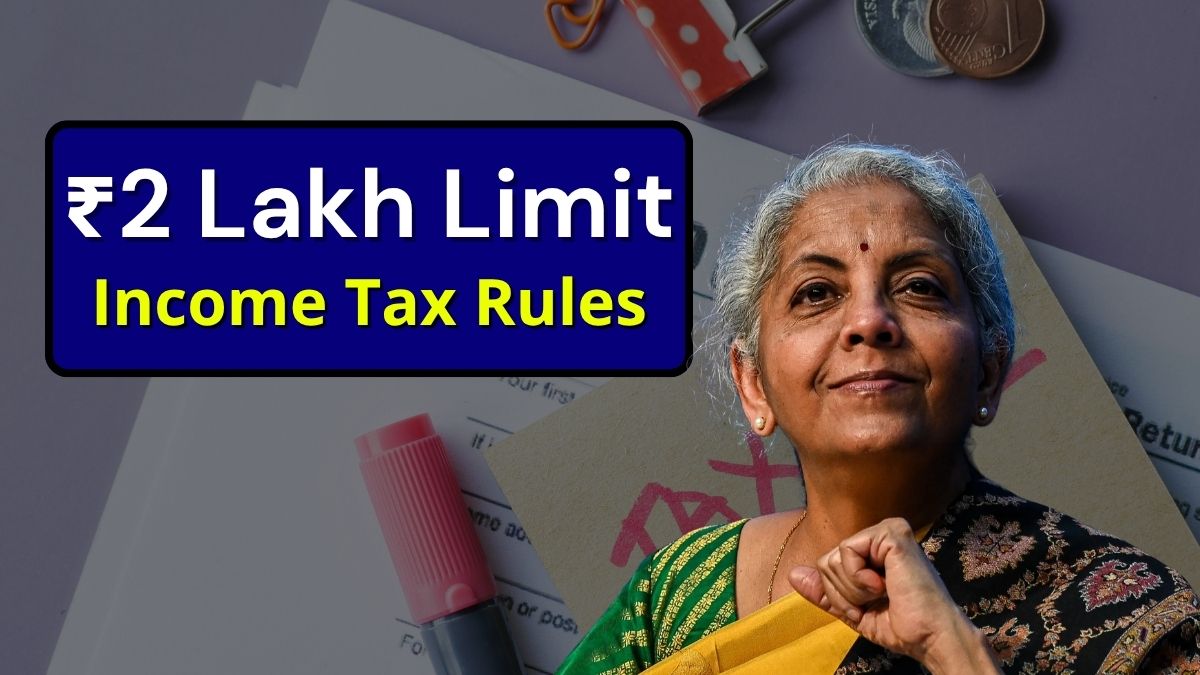Have you ever worried about getting an Income Tax notice just because you withdrew or accepted too much cash in one go? You’re not alone.
In a world where UPI, net banking, and digital wallets have taken over, many people still prefer cash for daily transactions — especially for personal or business deals. But here’s the thing: if you don’t know the rules around cash withdrawals and deposits, you might unknowingly land on the radar of the Income Tax Department.
Let’s break it down in simple words so you can stay safe and confident while handling cash.
Why the Tax Department Tracks Cash Transactions
India has been pushing hard for digital payments, but cash still plays a big role in our economy. To prevent misuse — like black money or unaccounted income — the Income Tax Department keeps an eye on high-value cash transactions.
That’s why the government introduced a rule under Section 269ST of the Income Tax Act. This rule sets clear limits on how much cash you can receive or spend in a day — and crossing that limit could cost you more than you think.
The Rule You Must Know: ₹2 Lakh Limit Per Day
According to Section 269ST, you cannot receive ₹2 lakh or more in cash in a single day — from one person or multiple people — for any reason.
That means:
- If you sell something, or
- Receive a loan, gift, or payment in cash exceeding ₹2 lakh,
then you’ve technically broken the rule.
And the penalty? It’s quite serious.
If caught, you might have to pay a penalty equal to the entire cash amount.
Example:
Suppose you receive ₹3 lakh in cash for selling your bike or property. If the Income Tax Department notices this, you could be fined ₹3 lakh — the full amount of the transaction!
That’s why experts strongly advise keeping large payments digital and traceable.
Real-Life Example: A Small Mistake, Big Trouble
Think about this — you lend ₹2.5 lakh in cash to a friend for his business. It feels like a friendly favor, right?
But under tax law, even personal cash dealings over ₹2 lakh can raise red flags. If your friend deposits that money in his account, it may show up in scrutiny reports. And once that happens, both of you might have to answer tough questions from tax officers.
So, even when your intentions are clean, the system still treats it as a potential violation if not done properly.
How to Stay Safe and Avoid Income Tax Notices
Now the good news — avoiding trouble is easy if you follow a few simple habits.
- Keep your transactions transparent
Always make payments via bank transfer, cheque, or UPI for large amounts. It not only builds proof but also keeps your name clear. - Always ask for a bill or receipt
Whether you’re buying a gadget, car, or piece of land — insist on a proper invoice or agreement. This document will save you if any questions come later. - Avoid splitting cash payments
Don’t think paying ₹1 lakh today and ₹1 lakh tomorrow makes it okay. The rule applies per transaction or deal, not per day. So the total still counts. - Keep records
Save bank statements, receipts, and digital proofs for all major financial activities. The more transparent you are, the safer you stay.
Expert Insight
According to Abhishek Soni, CEO and Co-founder of Tax2win, the Income Tax Department has a strong system to track large cash movements.
He says, “Taxpayers should be careful with any cash transaction over ₹2 lakh. Even if it’s personal, it can attract a notice or penalty.”
In short — your cash habits might look simple, but the law treats them very seriously.
Think About It
Cash feels convenient. No waiting, no OTPs, no transfer delays.
But with today’s tax rules, that convenience can sometimes come at a heavy cost.
So, before you hand over or accept large sums in cash, ask yourself — “Do I have a digital proof for this?”
If not, it’s better to switch to a safer mode of payment.
Because at the end of the day, a few extra clicks on your phone are much easier than dealing with a tax notice.
Frequently Asked Questions
1. How much cash can I withdraw from my bank in one day without any issue?
There’s no limit on how much you can withdraw from your own bank account. However, if you receive or accept ₹2 lakh or more in cash in a single day, that may violate Section 269ST.
2. What happens if I deposit or receive more than ₹2 lakh in cash?
If you deposit or receive ₹2 lakh or more in cash from one person in a day, you may face a penalty equal to the entire transaction amount. Always use digital payments for large amounts.
3. Are personal cash loans between friends allowed?
Yes, but if the loan exceeds ₹2 lakh in cash, it’s considered a violation. Always transfer large amounts through bank channels or online payments.
Final Thoughts
Digital payments aren’t just about convenience anymore — they’re about compliance.
Understanding simple tax rules like Section 269ST can protect you from unnecessary penalties and stress.
So next time you’re about to handle cash, remember: keep it small, keep it legal, and keep it documented.
